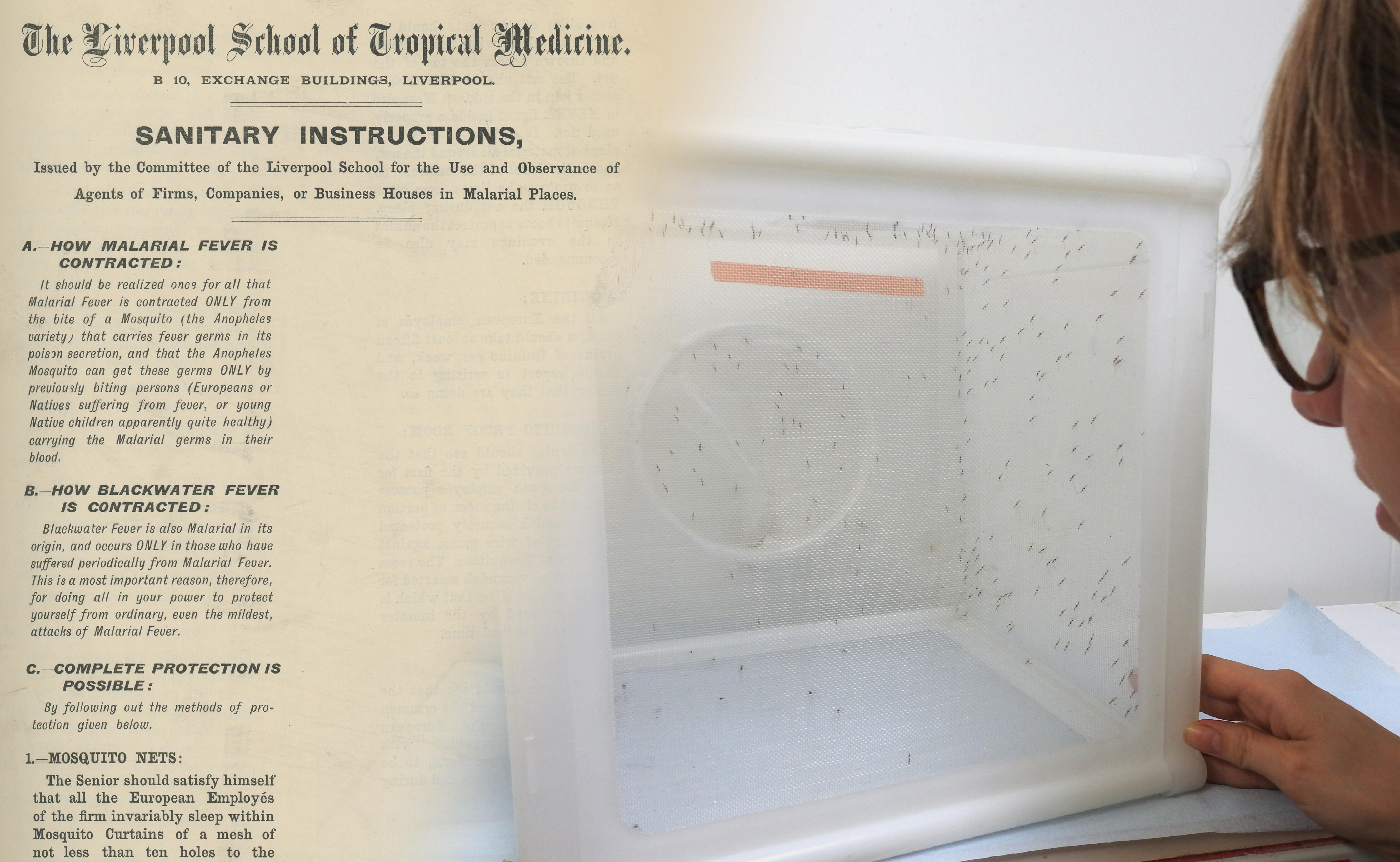
Tuesday 25th April is World Malaria Day and to consolidate the efforts of the last 12 months the theme remains 'End Malaria for Good', with the World Health Organization (WHO) highlighting the need for a continued push for prevention. It allows us an opportunity to look at some of the cutting-edge vector control work being carried out here at LSTM.
Since its founding in 1898, LSTM has been at the forefront of research into the prevention of diseases such as malaria through means of controlling the mosquito vector, with some of its researchers currently engaged in the whole translational pipeline, from laboratory based science, through to improved tools and interventions in endemics countries. This includes trials looking at new insecticide treated bed nets, tools to test the quality and quantity of the chemicals used in indoor residual spraying and digital games to educate programme managers in sub-Saharan Africa – all of which are necessary if we are to combat the rapidly rising problem of insecticide resistance.
LSTM’s Director, Professor Janet Hemingway FRS, said: “With an estimated 60-80% of the reduction in cases of malaria in the last few decades being attributed to vector control, a clear understanding of the mosquito species that spread the disease is vital to develop new and improved tools to prevent infected bites.

Prevention has always been the cornerstone in the fight against malaria with LSTM’s inaugural annual report from 1900 carrying “sanitary instructions” from LSTM’s first lecturer and Nobel Laureate, Sir Ronald Ross, giving an insight of how the disease might be avoided by agents, businesses and researchers working in “malarial places”, which included sleeping under nets and clearing waste ground and stagnant water within the vicinity of premises.
Over a century later we are still working towards the same goal and prevention remains key. “Elimination is not possible without effective mosquito control,” continued Professor Hemingway. “LSTM is happy to join with the WHO in their call for continued investment in prevention, so that partners working together can move a step closer to ending malaria for good.”

A timeline of the research on malaria and Ronald Ross' career at LSTM
See also our latest study on Malarial mosquitoes: Insecticide-induced leg loss does not eliminate biting and reproduction in Anopheles gambiae mosquitoes